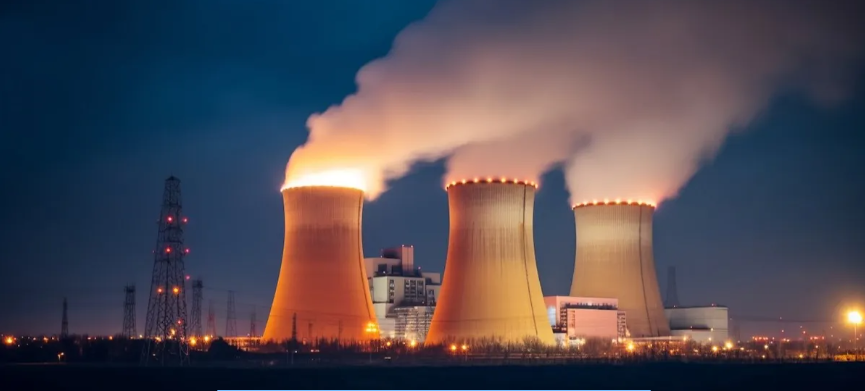Nuclear Energy The debate over nuclear energy liability has resurfaced as India and other nuclear-powered nations re-evaluate liability frameworks for nuclear disasters. While nuclear energy remains a crucial component of India’s clean energy ambitions, Nuclear Energy concerns are growing that weakening liability norms could lead to dangerous consequences for public safety and accountability.
Recent discussions on India’s nuclear liability laws, particularly in the context of foreign investment in nuclear projects, have raised alarms among activists, legal experts, and environmentalists. The fear is that corporate interests may be prioritized over public safety, Nuclear Energy leading to inadequate compensation for victims in the event of a nuclear disaster.
Key Concerns About Nuclear Liability Concessions
- Corporate Exemptions from Accountability – Reducing the liability of foreign nuclear suppliers could leave Indian taxpayers responsible for damages.
- Weakening of the Civil Liability for Nuclear Damage Act, 2010 (CLNDA) – Foreign pressure is mounting to dilute India’s nuclear liability law to attract investment.
- Risk to Public Safety – Lower liability standards could reduce the incentive for safety measures in nuclear plants.
- Environmental and Long-Term Costs – A nuclear disaster’s impact on human health and the environment could be catastrophic if liability is compromised.
Understanding Nuclear Liability and Its Importance
1. What Is Nuclear Liability?
Nuclear liability laws determine who is financially responsible in case of a nuclear accident. The goal is to ensure that victims receive compensation and that responsibility is clearly assigned to those who design, supply, and operate nuclear plants.
India’s Civil Liability for Nuclear Damage Act (CLNDA), 2010 was created to:
✅ Ensure nuclear suppliers and operators are held accountable for accidents.
✅ Guarantee financial compensation for affected people and environmental damage.
✅ Encourage safety measures in nuclear operations.
However, pressure from global nuclear suppliers has led to demands for dilution of liability norms, which critics argue could increase the risk of unaccounted disasters.
The Push to Reduce Supplier Liability: A Dangerous Precedent
One of the most controversial aspects of nuclear liability discussions is whether foreign nuclear suppliers should be exempt from financial responsibility in case of an accident.
🔴 The Foreign Suppliers’ Demand
- Companies from France, Russia, and the U.S. are pushing India to weaken nuclear liability provisions before finalizing new reactor deals.
- The argument is that strict liability laws discourage foreign investment in nuclear power projects.
- Suppliers insist that only Indian nuclear plant operators (NPCIL) should be liable, not equipment manufacturers.
 For the more information click on this link
For the more information click on this link
🔴 Why This Is Risky
- If only NPCIL (Nuclear Power Corporation of India Ltd.) is held responsible, then the burden of a nuclear disaster falls entirely on Indian taxpayers.
- Global experiences, such as Chernobyl (1986) and Fukushima (2011), show that nuclear disasters have long-term consequences that suppliers must be held accountable for.
- A nuclear accident could lead to mass displacement, radiation exposure, Nuclear Energy and billions in damages, making strong liability provisions essential.
📌 Case Study: Fukushima Nuclear Disaster (2011, Japan)
- The disaster led to economic losses exceeding $200 billion.
- Tokyo Electric Power Company (TEPCO) was held accountable, Nuclear Energy but suppliers were not adequately penalized, even though faulty reactor designs contributed to the crisis.
- The Japanese government had to step in with taxpayer funds, Nuclear Energy raising concerns about corporate accountability in nuclear accidents.
India’s Civil Liability for Nuclear Damage Act (CLNDA): A Protective Law at Risk
The CLNDA, passed in 2010, was designed to protect Indian citizens from the catastrophic consequences of a nuclear disaster. Key provisions include:
1. Section 17: Operator’s Right to Recourse
- This section allows NPCIL to claim compensation from foreign suppliers if a nuclear accident occurs due to faulty equipment or negligence.
- Foreign nuclear companies want this section removed, Nuclear Energy which would prevent India from recovering damages from them.
2. Section 46: Criminal Liability for Nuclear Accidents
- This provision states that nuclear accidents are subject to Indian civil and criminal laws, allowing affected citizens to sue for damages.
- Corporate lobbies are pressuring India to dilute or remove this clause, claiming that it could lead to “endless litigation”.
📍 Government’s Dilemma
- India wants foreign nuclear investment to meet its energy needs.
- But if liability protections are weakened, Nuclear Energy the cost of any future nuclear disaster will be borne by Indian citizens.
- A balanced approach is needed to attract investment without compromising safety.
Impact of Weakening Nuclear Liability on Public Safety and the Environment
1. Increased Risk of Nuclear Accidents
- If foreign suppliers aren’t held liable, Nuclear Energy they have less incentive to ensure the highest safety standards.
- Faulty reactor designs or substandard components could increase the risk of a nuclear accident.
2. Burden on Indian Taxpayers
- Without supplier liability, the cost of disaster recovery falls entirely on the Indian government and citizens.
- Compensation to victims could take years or even decades if legal loopholes exist.
3. Devastating Environmental Consequences
- A major nuclear accident would contaminate land, water, and air, Nuclear Energy leading to long-term ecological damage.
- Radiation exposure could cause genetic disorders and chronic diseases for generations.
📌 Example: Chernobyl (1986, Ukraine)
- Still uninhabitable 38 years after the disaster.
- Millions affected by radiation-related illnesses.
- Environmental damage continues decades later.
India’s Need for Nuclear Energy vs. Safety Concerns
India is expanding its nuclear power capacity to meet growing energy demands and climate goals.
Why India Needs Nuclear Power
✅ Reliable Energy Source – Nuclear energy provides consistent, large-scale electricity.
✅ Climate-Friendly – It helps reduce carbon emissions compared to coal-based power.
✅ Energy Independence – Reduces dependence on imported fossil fuels.
Why Safety Must Come First
🔴 Weakening liability laws could make India vulnerable to a nuclear disaster.
🔴 If an accident occurs, victims may struggle for decades to get justice.
🔴 A strong liability framework ensures foreign companies prioritize safety.
📍 Expert View
“Nuclear energy can be a game-changer for India’s energy future, but diluting liability laws would be a dangerous mistake. Public safety must always come first.” – Dr. Anil Rajan, Nuclear Policy Expert.  For the more information click on this link
For the more information click on this link
What Needs to Be Done? A Balanced Approach
India must balance foreign investment interests with public safety by:
1️⃣ Retaining Key Liability Provisions – Section 17 and Section 46 of CLNDA must remain intact to ensure corporate accountability.
2️⃣ Strengthening Nuclear Safety Regulations – Regular audits and stricter safety compliance should be enforced.
3️⃣ Ensuring Public Transparency – Nuclear agreements should be openly discussed to avoid secret compromises.
4️⃣ Expanding Nuclear Insurance Coverage – More funds should be allocated for nuclear disaster relief in case of emergencies.
📌 Public Advocacy Matters
- Citizen awareness and pressure on policymakers can prevent dangerous concessions.
- Media and legal experts must closely monitor nuclear liability negotiations.
Conclusion: Protecting India’s Future from Nuclear Risks
The push to reduce nuclear liability for foreign suppliers is a dangerous concession that could have long-term consequences for India’s safety and financial stability. While nuclear energy is essential for India’s future, safety, accountability, Nuclear Energy and justice for potential victims must remain the top priority.
Key Takeaways:
✅ Nuclear liability ensures corporate accountability in case of disasters.
✅ Foreign suppliers want to remove liability clauses to avoid financial responsibility.
✅ India must protect its citizens by maintaining strong legal protections.
✅ Public awareness and strong legal frameworks are essential for nuclear safety.
If nuclear energy is to be India’s power source of the future, it must be developed responsibly, without compromising on liability and public safety. ALSO READ:- ED Seizes ₹170 Crore Bank Deposits in Probe Against ‘Fraud’ Forex Trading Platform 2025





